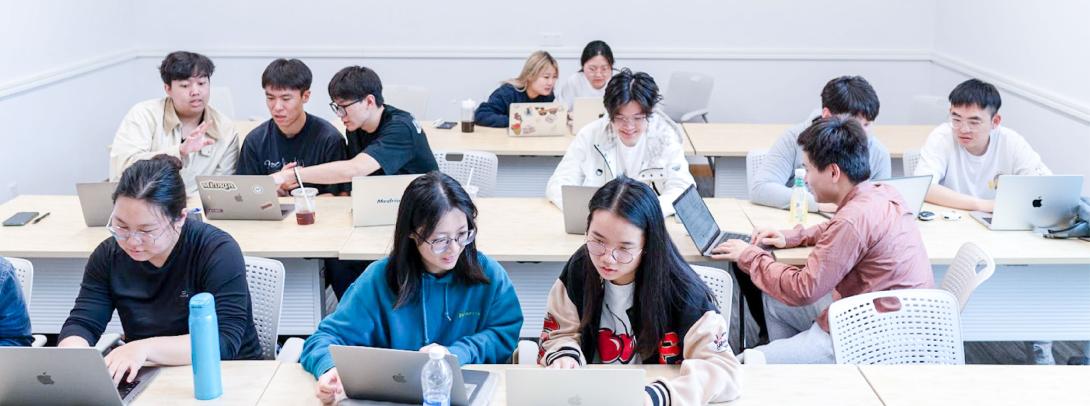This fall, several new courses were added to NYU Shanghai’s course catalogue of over 800 courses, and another 16 new courses will be on offer next semester in arts & sciences, business, and computer science, data science, and engineering. As the semester comes to a close, faculty and students share their experiences in some of the most innovative new courses on offer this year.
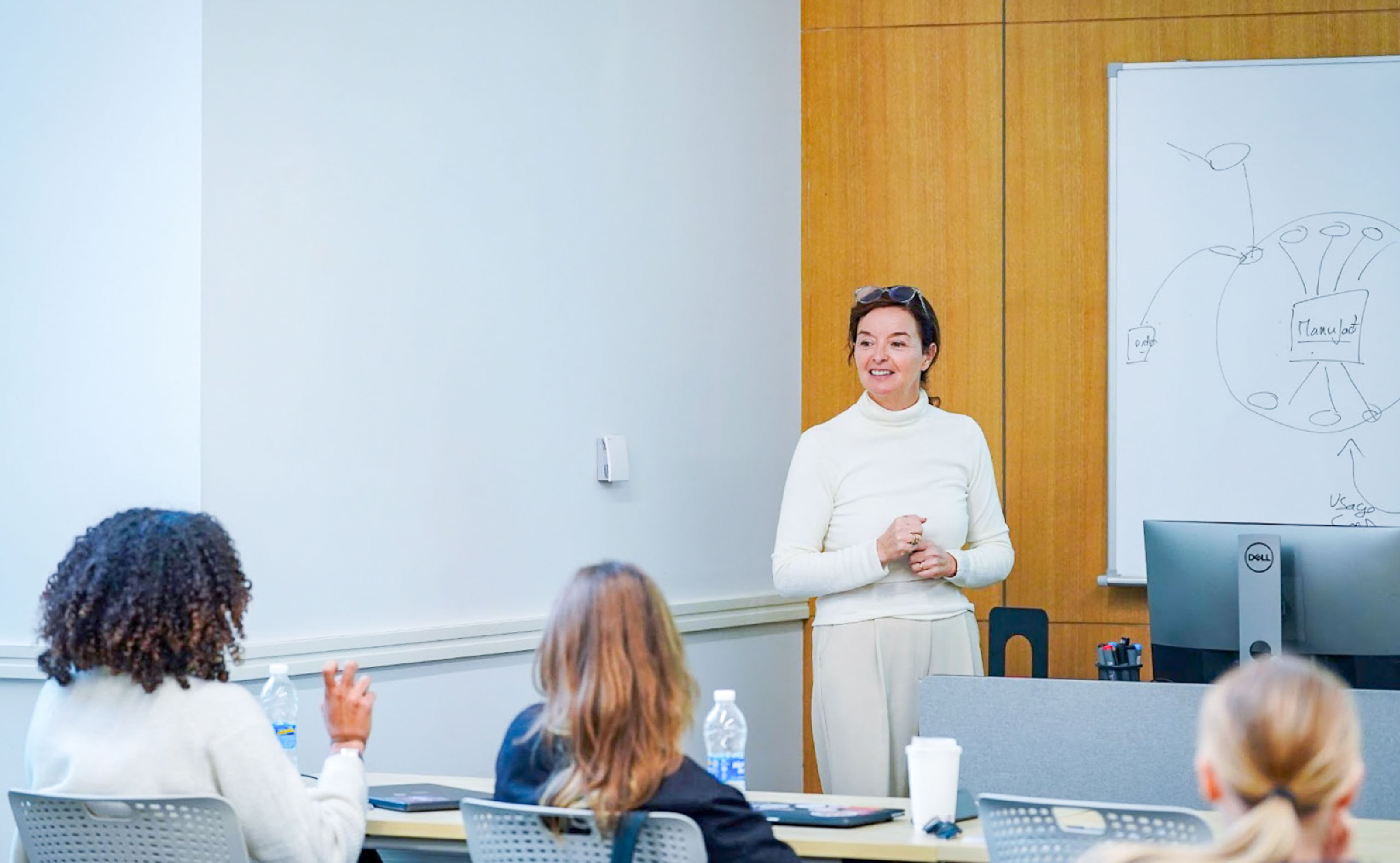
Generative AI: A Business Revolution
Taught by Associate Professor of Practice in IMB Gabrielle Chou
Elevator Pitch: What is this course about?
Gabrielle Chou: I want students to learn how to build useful things with generative AI. It’s funny—students today are using chatbots all the time, with varying levels of success, but many don’t fully understand their limitations. This course offers a practical, business-focused glimpse into how AI is built and the challenges along the way. What’s unique is that students don’t need a Computer Science or Data background to engage with these tools—they can fine-tune models or create agents for specific tasks. Along the way, we bring in guest speakers (this term, in Music & AI and building a custom GPT), and students present their final projects to scientists and startup founders in the generative AI space.
What’s your favorite part of teaching this course?
It’s the energy in the classroom. The practical, fast-moving nature of the material keeps everyone on their toes. Students are experimenting, engaged, and connecting the dots between the technical and business sides—it’s lively, dynamic, and never dull.
Why do you enjoy this class?
Charlie Howes ’25: I think this class allows you to explore the industries that you are interested in, under the context of how Gen AI is providing value or spurring innovation. I have previously been a skeptic of the implications of AI on business, as I am mostly interested in traditional industries. After taking this course, I have been able to understand that even for very traditional companies, AI tools have vast implications. As I go into the workforce, I genuinely have some research-backed ways that I could improve productivity for a team, utilizing Gen AI.
Why would you recommend this class to others?
Anya Zhukova ’25: Invaluable skills for life, experience in communicating your ideas. Moreover, the topic is very current and class assignments are exciting. I believe we are acquiring invaluable skills in presentation, research, and practicing a proactive attitude. Professor Chou is very passionate about the things she teaches and this interest transfers to the students. It shows that she wants her students to succeed and reach their full potential.
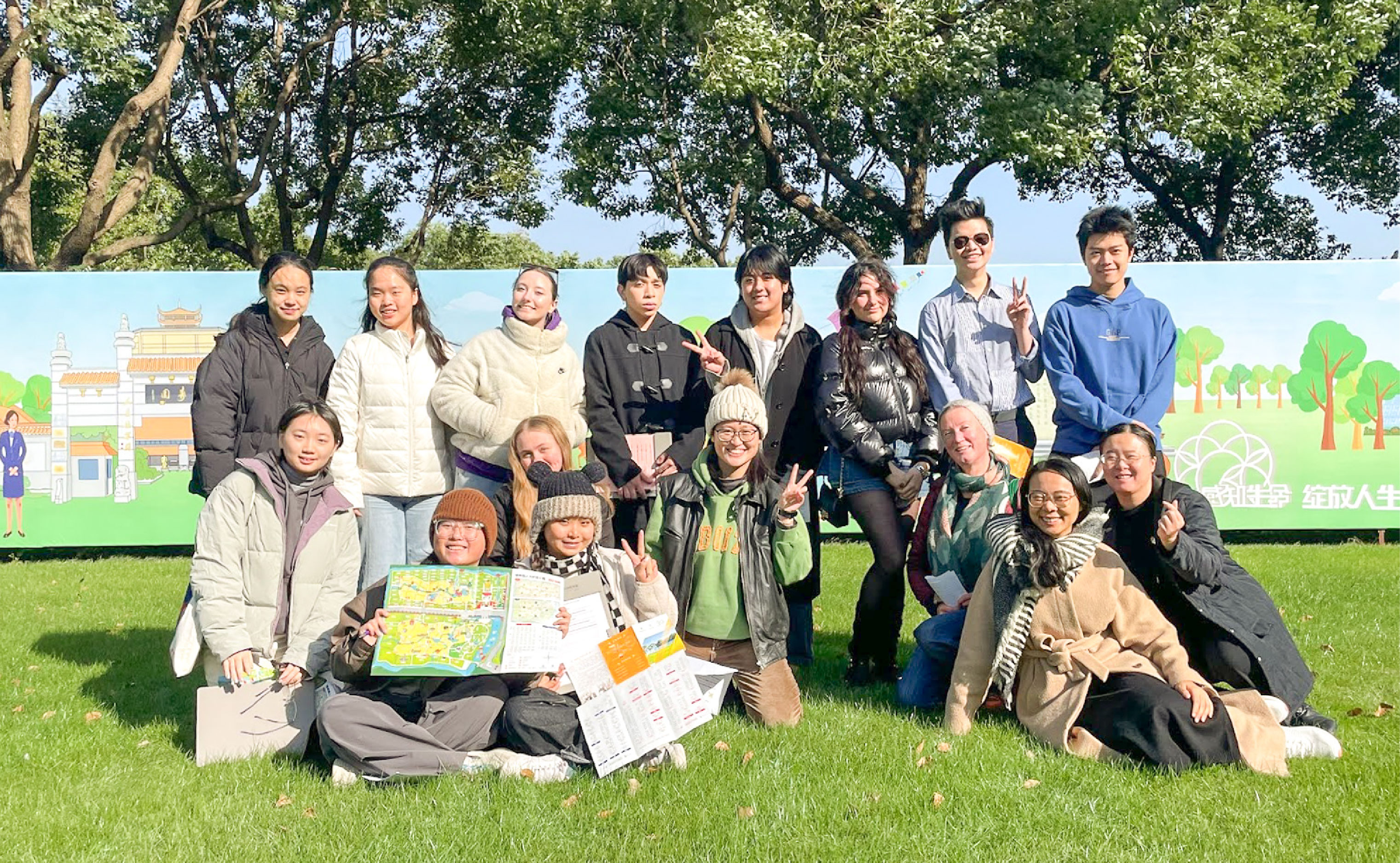
Good Death: China and Comparative Perspectives
Taught by Assistant Professor of Global China Studies Zhang Liangliang
Why did you want to offer a course about death?
Zhang Liangliang: As a social and medical anthropologist interested in the good life, I believe it is crucial to create an intellectual and social space to collaboratively explore human understandings and responses to death, which can lead to a better understanding of what it means to be human and how to live well with others. This holistic learning journey requires students to activate their full selves: not only their intellect, but also their courage, compassion, empathy, present awareness, openness to new and potentially challenging worldviews, and willingness to support fellow students throughout the process. By the end of the journey, I hope each student will have developed their own unique understanding of what makes a good death and how to live a good life in relationship with others.
What’s your favorite part of teaching this course?
Since I began preparing and teaching this course, I have also embarked on my own learning journey. Most notably, I discovered how death and love are inextricably intertwined, from ancient China to contemporary America, from the depths of the Amazon forest to the heart of Shanghai. This exploration has moved, shaped, and renewed me in ways beyond my imagination. I feel deeply honored to have the opportunity to share this experience with NYU Shanghai students.
What do you enjoy about this course?
Zhang Yuxuan ’25: Death is such a powerful subject – it hits everyone differently, no matter your background or stage in life. I think it is important to have a space where we can talk not just academically but also emotionally about these things. Something else I did not expect was learning about euthanasia and how it’s practiced around the world. It’s such a complex and nuanced issue, and it involves so many different perspectives. Every patient has unique needs, and it’s a subject that’s relevant to a lot of current social debates, too. And after taking this course, I have gained a much deeper understanding of how critical and challenging palliative care is in China.
Why would you recommend this course to other students?
Isabel Chen ’27: Death as a topic seems pretty intimidating at first glance, but I think it would be beneficial to get more comfortable with discussing it, and Good Death provides exactly the type of space for that. It's both deep and practical and a course that's hard to find anywhere else.
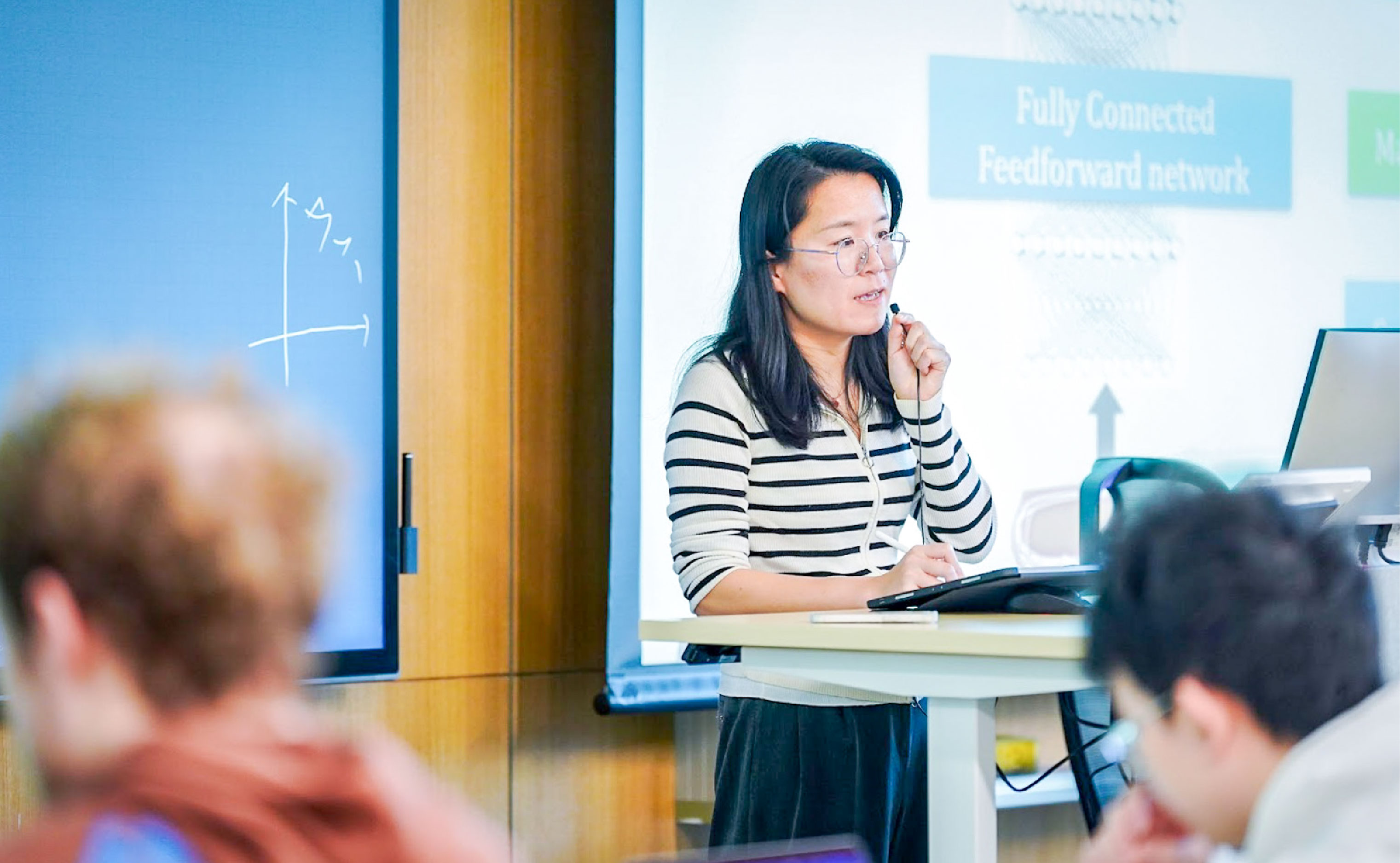
Computer Vision
Taught by Associate Professor of Practice in Data Science Guo Li
Why did you want to develop this course?
Guo Li: I wanted to develop the computer vision course because it’s such an exciting and important part of AI. Humans understand the world largely through what we see, and teaching computers to do the same opens up incredible possibilities—like self-driving cars, better healthcare tools, and even creative applications such as art generation. I felt it was essential to equip students with foundational knowledge and hands-on experience in computer vision, providing them with the tools they need for their future research or industry roles.
What's your favorite part of teaching this course?
One of my favorite aspects of teaching this course is its dynamic nature. We adjust the course content to incorporate the latest developments in the field, such as generative models for image synthesis or 3D reconstruction. Students are often eager to explore these new areas, and their curiosity and creativity are truly inspiring. It’s rewarding to see students come up with creative ideas, and turn them into actual implementations for tackling real-world problems.
What do you enjoy about this class?
Mei Han ’24: Professor Guo provided us with the opportunity to review some of the most up-to-date research papers in the field. This not only kept the content fresh and relevant but also gave us a glimpse into the vast and ever-evolving landscape of computer vision. It was exciting to see how recent advancements are shaping the future of the field.
Why would you recommend others to take this class?
Yang Xiaocheng ’24: Computer vision research is still one of the most important components in the area of applied machine learning. Since large language models have shown great capabilities, there is now a research trend to expand the domain of the models from purely textual information to multimodal information, which involves computer vision background knowledge. If someone wants to catch up with this trend, he/she probably doesn't want to miss this opportunity to take a nicely-delivered computer vision course.
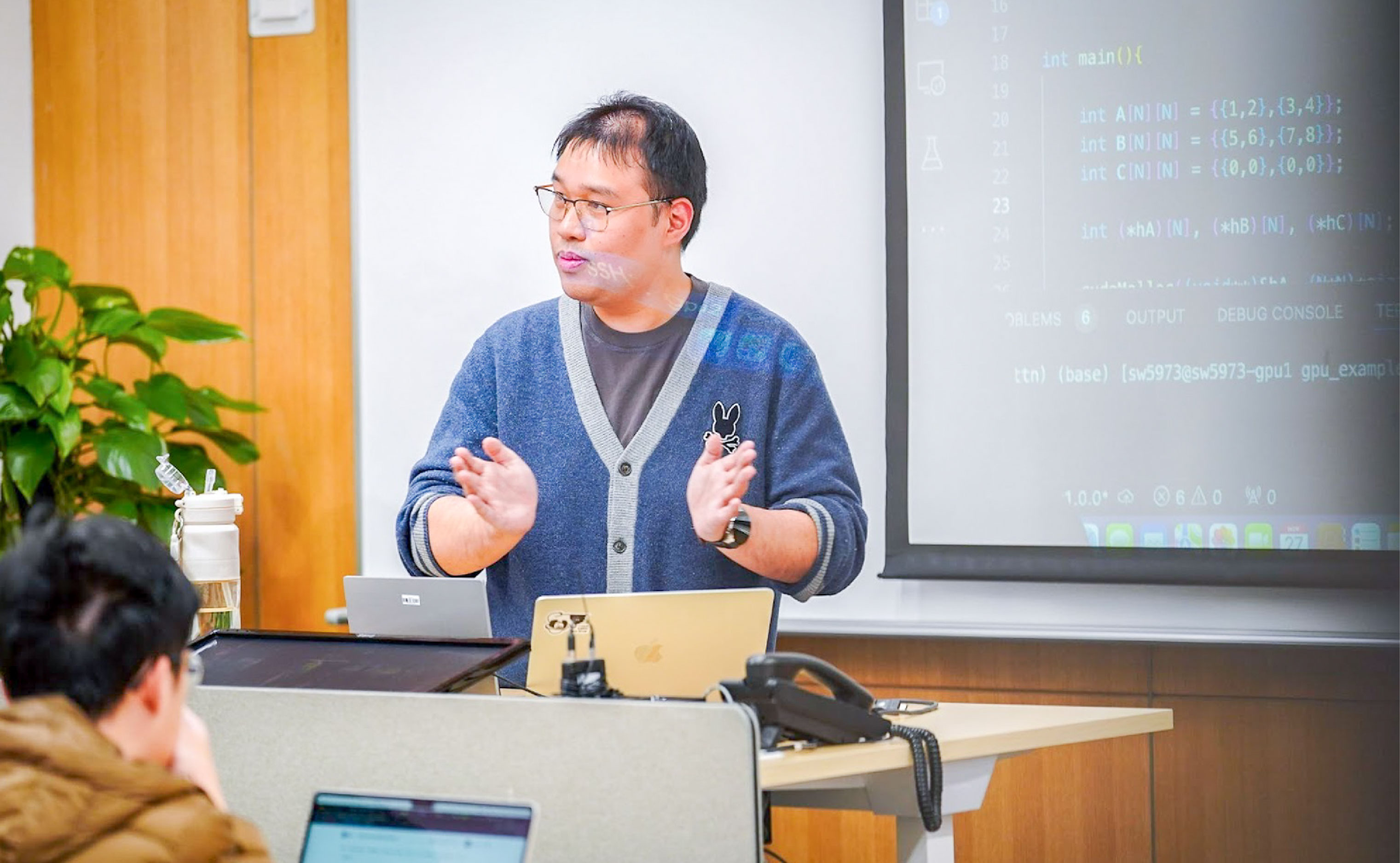
Topics in Machine Learning-Deep Learning
Taught by Assistant Professor of Computer Science Wang Shengjie
What’s this course about?
Wang Shengjie: This course offers a comprehensive introduction to the field of deep learning, a subset of machine learning that models complex patterns in data using multi-layered neural networks. Students will learn the theoretical foundations of deep learning, including backpropagation, optimization techniques, and the architecture of feedforward, convolutional, and recurrent neural networks. The course will also cover more advanced topics such as autoencoders, Generative Adversarial Networks (GANs), transformers, and deep reinforcement learning. Through a combination of lectures and hands-on projects, students will gain practical experience building and training deep neural networks for applications like image recognition, natural language processing, and speech synthesis.
Why did you want to offer this class?
The course is about learning the most advanced deep learning techniques, including mathematical modeling, deep learning architectures and machine learning systems. The aim is to get students ready for AI model development and research. AI is getting more important and is quickly advancing. The current curriculum focuses more on classic machine learning and so there is a gap between the modern approach and what we have been teaching. The modern approach I take in this class is very broad, with emphasis on both math and systems. Without systematic training, it is challenging for students to learn the materials independently. In this class, I am teaching the most recent developments in AI, including papers published in the past year. I can frequently interact with the students and adjust the teaching contents dynamically.
Why do you enjoy this class?
Xia Jinghong ’25: The class introduces recent machine learning research topics like the autoregressive model and diffusion model, by going through representative research papers in detail. Professor Wang has a thorough understanding of the cutting edge research direction and his explanation is crystal clear. The small class size allows us to interact with him, which is very helpful given that the course's topic covers a broad range of fields. I would recommend this class to my classmates who have just finished fundamental machine learning and are interested in machine learning research. This class provides just enough knowledge to gain understanding of recent research hotspots and a good starting point to imagine deep learning applications. Taking this course at an early stage of undergrad study is a real privilege.


